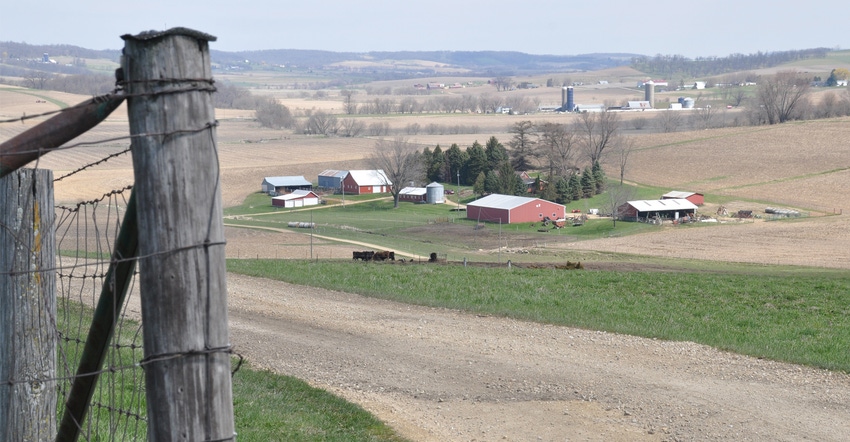December 12, 2017

Life is full of risks. Knowing that, do you just stick your head in the sand and hope the worst doesn’t happen? Probably not. More likely, you take steps to protect yourself. You inspect equipment before you buy it, you purchase an extended warranty, you slow down on icy roads, you buy crop insurance, you carry liability insurance, you use pesticides, and you might even watch your weight.
What major risks does your family farm face as it passes to future generations? I expect you would come up with at least two or three of the following: inexperienced management, lawsuits, divorce, catastrophic long-term care costs, family feuds, estate taxes. Have you taken steps to protect your farm? Or are you just leaving it to chance?
Estate planning is too often thought of as merely signing a document that dictates who will get your assets when you die. If your estate is larger than $4 million, you probably have at least made an effort to reduce estate taxes. That is, you begrudgingly signed a more complicated will or living trust.
But estate planning can do so much more to reduce or eliminate risks.
Estate planning starts with assuring that your affairs will be competently managed if you become disabled. Practically speaking, this requires that you give someone increasing responsibility while you can still be in charge so they will become qualified to manage the farm when you can’t. Then your estate plan must ensure that this someone will have the legal authority to act (i.e., as successor trustee of your living trust) when the time comes.
Full insulation?
Everyone wants to protect the farm from lawsuits, but one of the biggest gaps I see in estate plans is proactive lawsuit protection. It is impossible to fully insulate your own assets from claims against you. But if you look ahead, you can make such protection much easier for your heirs. Provide in your will or trust that each child will receive what you give him or her in a beneficiary-controlled asset protection trust. This will provide your children stronger lawsuit protection than any corporation or limited liability company ever could. It also provides them tax advantages. Such a trust cannot be set up by your children after they inherit. You must say in your estate plan that this is how your children will receive the farm from you.
Just in case there were ever a divorce, most people don’t intentionally leave their estate to their daughter and her husband, or their son and his wife — because they want the assets to stay in the family. But even giving the estate to your child (and not his or her spouse) leaves it at risk to a later divorce. An asset protection trust is the foresighted solution, because it works against divorce as well as lawsuits.
Farm to nursing home
Many people worry about losing the farm to long-term care costs: the nursing home. If you don’t have long-term care insurance and your income is not sufficient to cover the costs of your care, it takes difficult and often costly planning to shield your farm from this risk. But again, look ahead. How about the next generation? The way you leave the farm to your children (an asset protection trust) can insulate the farm from nursing home expenses.
Does an asset protection trust mean you are tying things up or controlling from the grave? No. Your children can be given broad control over their inherited trust while enjoying ongoing protection for life.
On the other hand, there might be some things you want to control. For instance, we all hope our kids won’t feud over what they receive. But like any other risk, you should do more than hope! Make a plan for the continuation of the farm. If one child needs to be able to farm all your land in order to have a viable operation, but you want other children to share the farm, spell it out. Divide the land among them and stipulate that the farming child has the option to lease all land inherited by the others. Include purchase options in case a nonfarmer chooses to sell their land. Go so far as to prohibit the sale of land, if that is your wish. Where do you include legally binding stipulations like these? In their asset protection trusts, of course!
Are you resolved to get serious about planning to protect your farm?
Ferguson owns The Estate Planning Center in Salem, Ill. Learn more at thefarmersestateplanningattorneys.com.
About the Author(s)
You May Also Like






